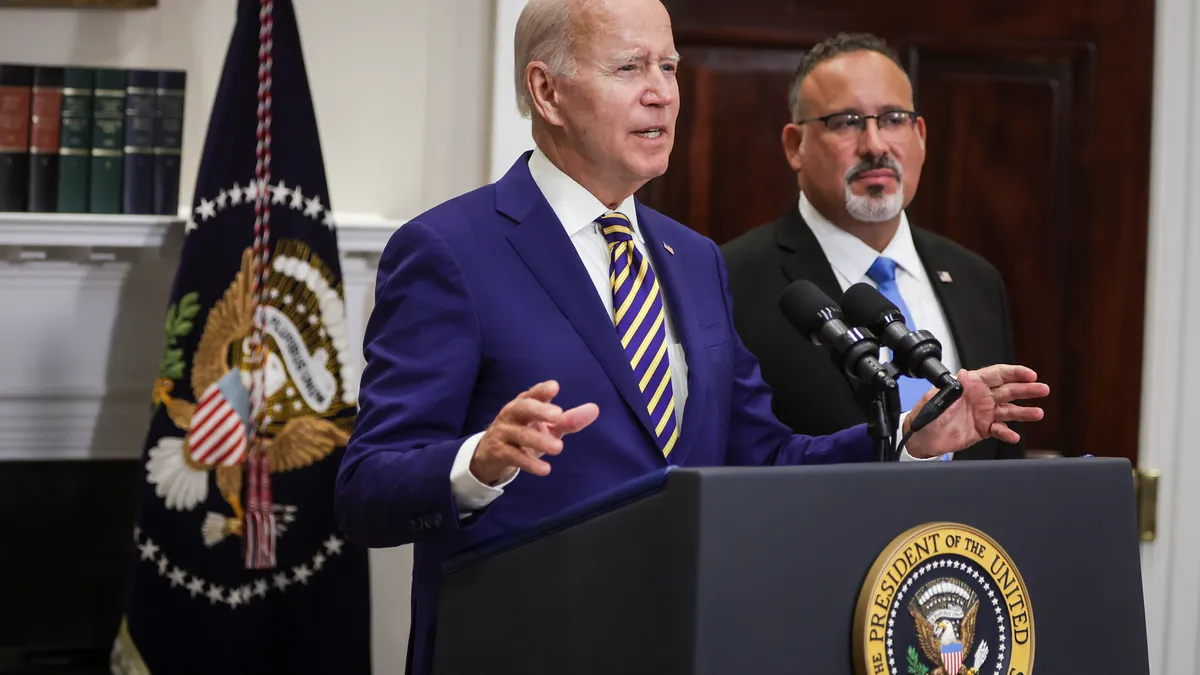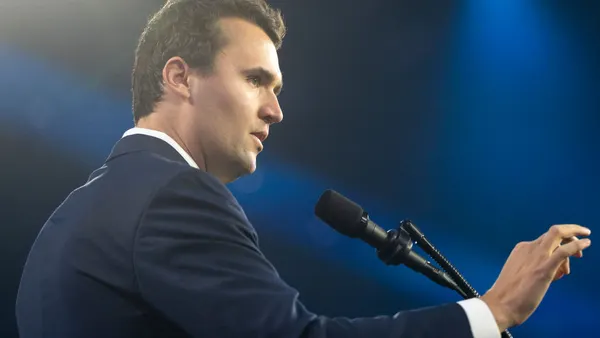When the final round of COVID-19 pandemic aid was passed, many had one question in mind: What would happen when the funding dried up?
At the time, U.S. Secretary of Education Miguel Cardona advocated for a "sustained effort" even after the American Rescue Plan's Elementary and Secondary Emergency Relief Fund expired. Following that call, the Biden administration did, in fact, make ambitious requests in its Education Department budget proposals.
The latest request to increase funding for K-12 received its answer in late December, when Congress passed appropriations for fiscal year 2023. Here are 4 charts to understand how Congress responded to the administration's asks to bump K-12 funding in various areas.
Education Department receives funding increase
Overall, the U.S. Department of Education received a $3.2 billion increase in funding to a total of $79.6 billion for fiscal year 2023, following a similar increase the year prior. While the total still falls short of the $88.3 billion originally requested by the administration, the increase was welcomed by the department.
"The bipartisan funding package reflects the Biden-Harris Administration’s commitment to increasing equity in educational opportunities and outcomes for our students," Cardona said in a statement when the increase was signed by President Joe Biden.
Funding for major programs increases throughout pandemic
Many programs districts depended on during COVID-19 have expanded since its start
Major programs schools depended on during the pandemic expanded as part of that increase. Education for Homeless Children and Youth, which districts increasingly relied on to serve districts' homeless students, received the largest bump in funding seen in recent years.
“This increase is certainly movement in the right direction," said Barbara Duffield, executive director of SchoolHouse Connection, which advocates for homeless students and supporting programs. "In the wake of the pandemic and lingering economic impacts, family and youth homelessness shows no sign of abating."
While the increase to $129 million is nowhere near the $800 million provided under ARP, it's still greater than the president's request for $110 million.
Early childhood, rural education, and Title I grants also increased by almost or about 20% when compared to the start of the pandemic, while special education's IDEA Part B received a more modest increase of 11%.
Additional programs receive attention
Initiatives educators have advocated for expandedPrograms that seek to address problem areas within K-12 education such as teacher shortages and socioeconomic inequities among students also received increases.
In the wake of COVID-19, which required schools to focus on wraparound needs, for example, community schools were expected to receive more attention and even saw support from states. The fiscal 2023 package doubles funding for full service community schools from $75 million to $150 million.
The Biden administration also sought to address other problem areas like special education staff shortages through the $250 million it requested for special education personnel preparation. Congress ultimately provided a funding increase of 21% to $115 million.
And where many educators hoped to sustain universal meals that bridged inequities during the pandemic, the final package instead bumped funding for child nutritional programs by a modest 6%.
Office for Civil Rights receives slight budget bump after record year of complaints
COVID-19 masking policies and more recent policies regulating LGBTQ and race-related discussions have spurred questions of how the Education Department will respond to increasing division in the education community and enforce civil rights protections.
These questions have resurfaced an interest in the Office for Civil Rights, which received a record number of discrimination complaints in the last fiscal year, between October 2021 and September 2022.
For the next fiscal year, OCR received a smaller increase than the administration requested, totaling $140 million rather than the $161.3 million Biden sought.
In a statement on the passed budget, the department said it looks "forward to raising the bar on this progress" made in FY 2023 and hopes to "continue to deliver on the Biden-Harris Administration’s firm commitment to investing in education."










